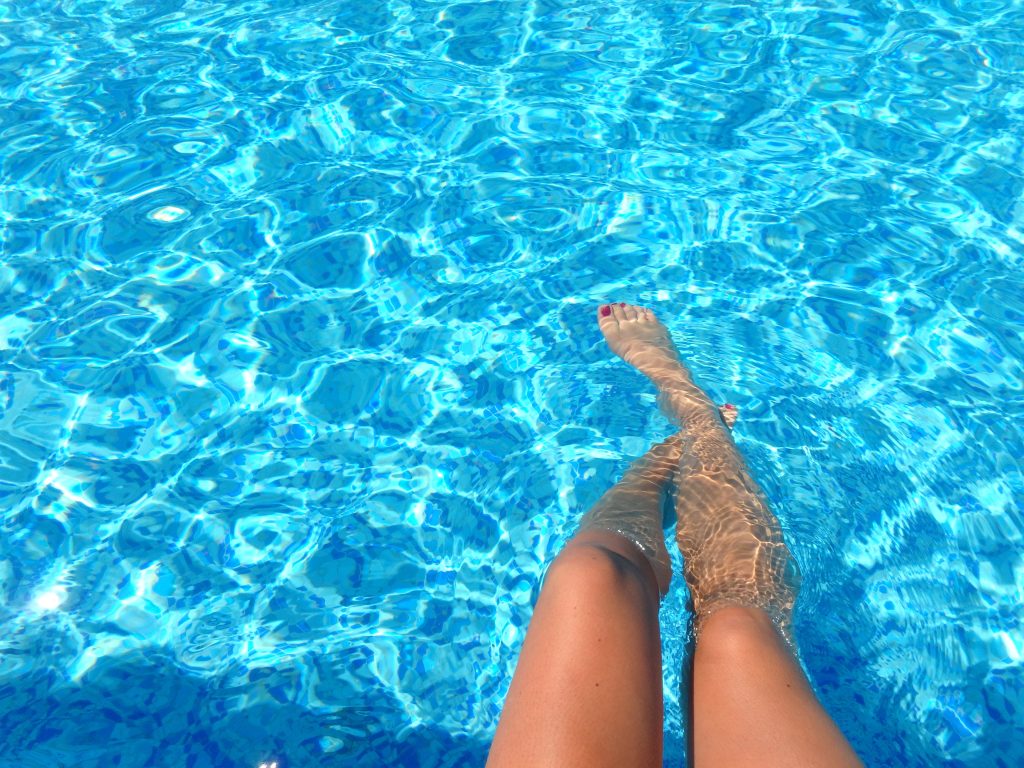It’s that time of year again. The weather is getting warmer and your pool is starting to look like a tempting oasis. But one main thing that could dampen your plans is to be met with discolored water as you’re getting ready to take the plunge.
This doesn’t need to be the case as there are a few things you need to do to make sure your pool is clean and ready for swimming season.
If you’re wondering about what regular maintenance should be done on a pool, whether you have an above-ground or inground pool, then you’re in the right place. Below are some tips on what you need to do to keep your pool clean and well-maintained.
Tips on how to maintain and clean your swimming pool
- Test the water regularly. The most important thing you can do to keep your pool clean is to test the water regularly and adjust the chemicals accordingly. Test kits are available at most hardware stores or pool supply stores.
- Keep the pH levels in check. The ideal pH level for a swimming pool is between 7.2 and 7.6. If the pH level is too high or too low, it can be uncomfortable for swimmers and also cause damage to the pool itself.
- Shock the pool once a week. Shocking the pool helps to kill bacteria and algae that can build up in the water. Be sure to follow the directions on the shock product you’re using.
- Skim the pool daily. Skimming the surface of the pool removes leaves, bugs, and other debris that can fall into the water. This will also help to keep the water level from getting too low.
- Vacuum the pool weekly. Vacuuming the pool helps to remove dirt and debris that has settled to the bottom. Be sure to vacuum in a slow, methodical manner so you don’t miss any spots.
- Clean the filter monthly. The filter is one of the most important parts of your pool’s filtration system. A dirty filter can cause all sorts of problems, so be sure to clean it regularly.
- Inspect the pool for leaks monthly. Leaks can cause all sorts of problems, so it’s important to catch them early. Check around the edges of the pool and look for any cracks or holes.
- Drain and refill the pool every three to five years. Over time, the water in your pool can become stagnant and full of chemicals. Draining and refilling the pool will help to keep the water fresh and clean.
What Are The Signs of a Leaking Pool?
There are a few signs that your pool might be leaking. These include:
- The water level in the pool is dropping
- There are cracks or holes in the pool
- There is water on the ground around the pool
- The pool is sagging in one area
If you notice any of these signs, it’s important to have the pool inspected by a professional as soon as possible. Leaks can cause major damage to your pool and your home.
FAQ
What Do You Mean By Shocking a Pool?
Shocking a pool is a process of adding a large amount of chlorine to the water all at once. This is done to kill bacteria and algae that can build up in the water. Shocking should be done on a weekly basis, but you may need to do it more often if the pool is used frequently.
How Often Should I Shock My Pool?
Shocking your pool should be done on a weekly basis. You may need to do it more often if the pool is used frequently.
How Long Does Pool Shock Last?
Pool shock typically lasts for 24 hours. Be sure to test the water before swimming to make sure the chlorine levels are back to normal.
Why is My Pool cloudy?
There are a few reasons why your pool might be cloudy. It could be due to a high pH level, too much calcium in the water, or too much organic matter in the water. Be sure to test the water and adjust the chemicals accordingly.
My Pool Smells Bad, What Can I Do?
If your pool smells bad, it could be due to a high pH level, too much chlorine, or too much organic matter in the water. Be sure to test the water and adjust the chemicals accordingly. You might also need to shock the pool.
When Should I Vacuum My Pool?
Vacuuming your pool should be done on a weekly basis. This helps to remove dirt and debris that has settled to the bottom. Be sure to vacuum in a slow, methodical manner so you don’t miss any spots.
What Are the Benefits of Draining and Refilling My Pool?
Draining and refilling your pool every three to five years helps to keep the water fresh and clean. Over time, the water in your pool can become stagnant and full of chemicals. This can be hard on swimmers, so it’s important to keep the water clean.
Proper pool upkeep will help to extend its lifespan and keep it looking its best. By following the tips above, you can be sure that your pool is ready for swimming season.






